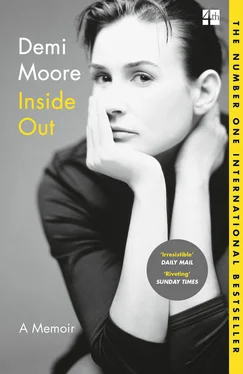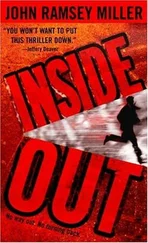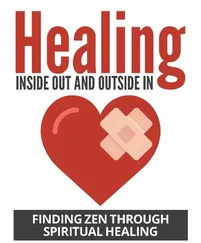Needless to say, whenever I started to get a sense of a place, to decipher how I might fit in through sports or the social scene or what classes I might be good at, it was time to pick up and leave. Usually without much warning, or any kind of logical plan.
I DON’T KNOW which of my dad’s illicit activities provoked this particular fight—whether it was another infidelity, or if he just got too nasty when he was drunk—but one afternoon when I was doing my homework to the background music of my parents fighting at the top of their lungs, I heard my mother scream, “I’ve had it with your shit!” She came storming into my room and told Morgan and me to grab our stuff and get in the car, we were going back to Roswell.
This was nothing out of the ordinary, of course: we were pretty efficient at packing by this point, and we were used to hitting the road for hours on end while my mother chain-smoked out the window. But going back to Roswell was a departure from the exhausting routine of starting over from scratch. Insofar as we understood the concept, Roswell was home. It was where we came from, where we had family and history and an understanding of the culture and the community. And then there was Grandma Marie, whom I’d called “Mother” as a little girl, and who was, in many ways, the only adult I really trusted. Staying with her was grounding, soothing. When we got to her house, it was a relief just to be in her midst.
Even with half a dozen states between them, my parents managed to keep their drama explosive. The screaming phone calls began almost as soon as we arrived—my father’s voice was so loud through the receiver it felt like he was there in the room. My mother would stalk around the house sobbing histrionically, while I tried to stay out of her way. Morgan escaped into his projects: taking apart and putting back together the vacuum cleaner motor, disassembling the alarm clock to see how it worked. When my aunts came around, I realized they were shooting knowing glances at each other during my mother’s outbursts and drinking binges. For the first time I felt embarrassed by her. And I was ashamed of myself for feeling that way.
Ginny wanted me to take her side and tell everyone how horrible my dad had been to her, but I couldn’t. Aside from the gambling, I felt they were equally to blame for the chaos in our lives. Now that I was old enough, I could see how childish she was compared to her sisters—how rarely she took responsibility for herself, and how her default mode was to blame everyone else: my dad, my grandmother, whoever. Little by little, I started to wall myself off from her. With my grandmother around, I didn’t need to overlook my mother’s craziness just to survive.
So, on the inevitable afternoon when Ginny said we were going back to my dad, I didn’t get up and start packing as I always had in the past. Dad had gotten a new job in Washington State, north of Seattle, Ginny told me and my grandmother, and the plan was to return to him in Pennsylvania and then move to the other side of the country together as a family.
I looked at my grandmother. I looked at my mom. And then I said, “I’m not going.” Ginny didn’t give me a good enough reason for returning to the man she’d been spending all of her waking hours maligning to her family or fighting with on the phone. I was sick of things not adding up. Whatever it was they were doing, I didn’t want to be a part of it. My mother tried to persuade me, but she saw that I was immovable. She took Morgan and went back to Charleroi without me.
That summer, I did gymnastics at the Y, where I made my first best friend, Stacy Welch. My grandmother enrolled me in the better public school in Roswell in the fall—we weren’t zoned for it, but Grandma Marie finagled it by dropping me off every morning at Stacy’s house, and then Stacy and I would walk to the bus or Mrs. Welch would drive us to school. I made the cheerleading squad. Suddenly, I was living like a normal person, like everybody else. It felt great.
Once Ginny made it to Washington with my brother, I started getting the push: “You should come up here; it’s beautiful, you’d love it!” And there was a part of me that felt you should be with your parents —a dutiful pull. But why? I was doing fine.
My grandmother took care of me with a consistency I’d never before experienced. She made sure that I finished my homework, brushed my teeth, got to bed on time. She let me paint my room bright yellow because I loved Tweety Bird so much. She was attentive to everything in my life, including the friends I was making at school. If I went to the movies, she would pick me up, or, if she was working, she’d arrange to have someone else get me. Never once was I left standing on a street corner, wondering if anyone would show up. The daily disasters of life with my parents were nonexistent. In essence, I got the version of my grandmother that my mother had always yearned for.
After my granddaddy died, my grandmother went through a prolonged mourning period. For almost two years, every day when she got home from her job in the office of a legal title company, she lay on the couch in the living room without turning on the lights. Then she met a lovely guy named Harold and found love again. They had their regular schedule, and I became part of their routines: Tuesday and Saturday nights they went dancing, so I either had a sleepover at a friend’s house or someone came and slept over with me. Wednesday was Grandma Marie’s standing appointment at the beauty parlor, and when she finished getting her hair done after work, we would go out to dinner, just the two of us, at one of the usual spots: the Mexican restaurant, Furr’s cafeteria, or the Chinese place. The Roswell rotation.
It was a halcyon period of safety, a time when I saw what a parent could be—should be—and an example I would look to when I became a mother. And yet, I started to get restless. By that point, I was conditioned to not stay in one place for too long. I didn’t have any experience in following through; I had no barometer for the hardships—or the rewards—of commitment. I’ve often wondered what my life would be like if I’d remained in Roswell. I would have had to work on developing and maintaining friendships, which had always been disposable. I would have had to set goals for myself, which I’d never done, because we weren’t in one place long enough to see them through.
None of that happened. I had learned to crave extremes: it was like I needed the juice of it. I lasted six months in Roswell. Then I went back to my parents.
I was with my family in Washington for just two months before they decided we were moving, this time to Southern California—and in a hurry. Maybe it was because of a mistress, maybe they were dodging a bill collector, or maybe the Pacific Northwest chapter of the mafia had figured out where to find my dad. We may simply have been evading Roger the therapist. My mother had stolen his credit card, and we used it to pay for our trip to California.
Somewhere along the never-ending nineteen-hour drive to Redondo Beach, my dad got badly beaten up; his face was swollen and bruised and he had a black eye. He looked awful: I can picture his battered face behind the wheel. In keeping with the silence that surrounded every unpleasant aspect of my family’s life, there was no explanation or discussion.
Once we were installed in our new place in Redondo Beach—an apartment in a beachy, stucco, pseudo-hacienda-style complex a mile from the water—my mother told me that when anyone called I should say that both my parents were away and couldn’t be reached. They were eluding the phone company, the electric company, and credit card carriers—all of whom would ask to speak to the variations of my parents’ names they’d been given, like “Virginia King,” my mother’s maiden name, or my dad’s first and middle names, “Danny Gene.” My parents even rented our apartment under the names of my aunt DeAnna and my uncle George, my father’s little brother, who lived nearby in L.A.
Читать дальше











